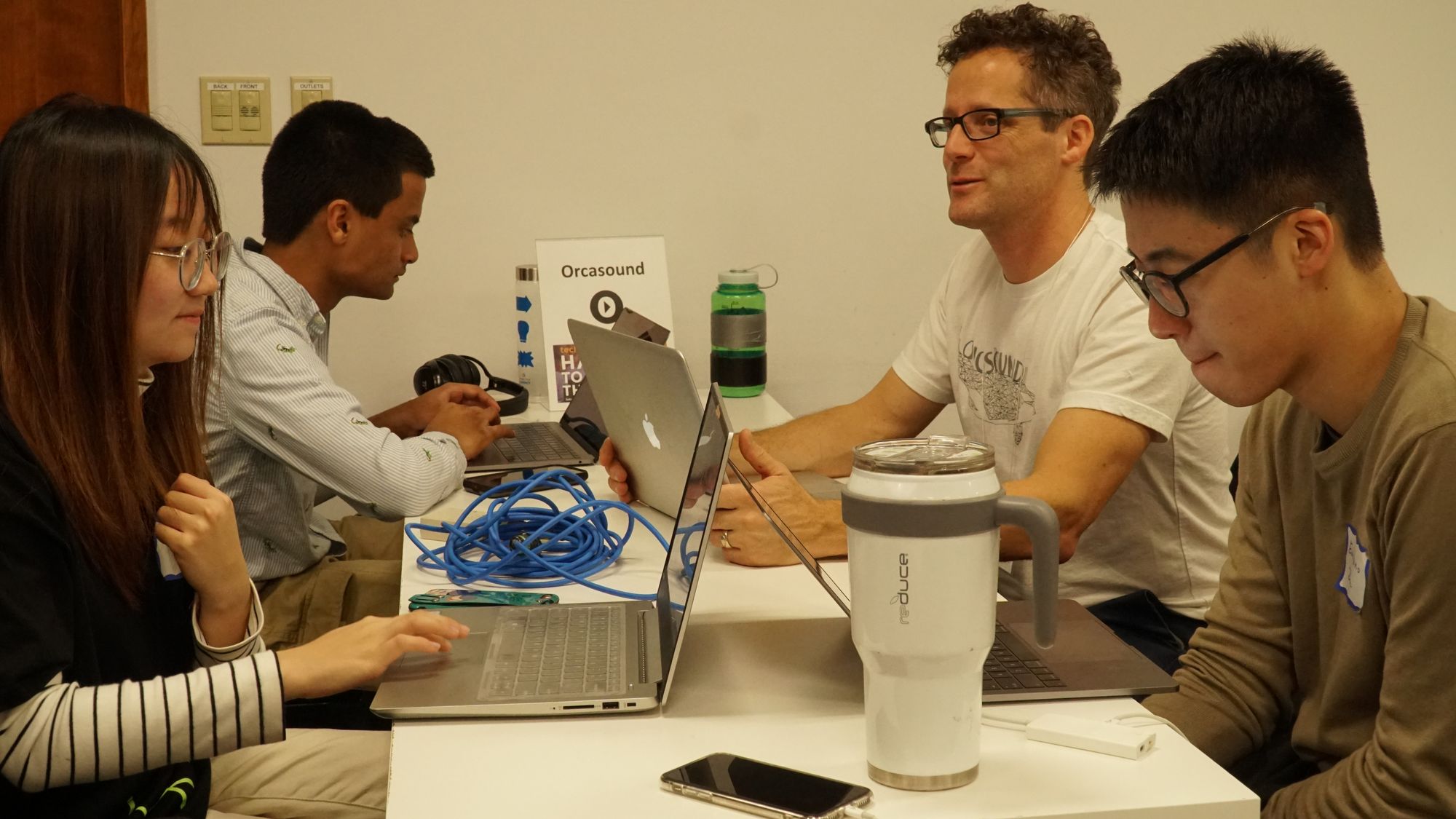OrcaSound Uses Machine Learning to Advocate for Endangered Orcas

“The bird people are ahead of us,” was not what I expected to hear coming from a group at Hack to Give Thanks tasked with talking about killer whales. But, according to Scott Veirs of OrcaSound, a web-app that allows users to listen for whales and then conserve them, this is the state of the animal-listening scene.
Birders have apps that not only teach users about bird calls, but also allow users to teach the app right back--about what calls the machine might have missed or mislabeled. And that, said Veirs, is one of the things he’d like to do with OrcaSound. But the app is far more than a teaching and research tool. His ultimate goal is to save the killer whales from extinction.
“How do you notify people that nature is calling?” Viers asked. “And how do you get someone’s attention and inspire them to conserve?”
The project began with a Kickstarter app in 2017 and has continued with the help of Hackathon volunteers for the last year. Viers believes that noise is one of the major risks to the orcas that call Seattle home, which is why OrcaSound invested in hydrophones and dropped them in the locations around the Puget Sound. From these hydrophones, users are able to listen--not only to the calls of the orcas, but also to the noisey vessels that disrupt the echolocation they use to find food.
Viers was looking for user researchers at Hack to Give thanks, hoping to tweak the feedback tool he is using to understand what users would like to see in the next iteration. However, three people interested in machine learning showed up to form his team, so he quickly pivoted the goal for the day. He set them to work to figure out how the app could detect orca clicks. For now, machines can only detect orca calls.
If you’d like to be involved in helping to conserve Seattle’s killer whale population, reach out to Viers on DemocracyLab. He’s looking for people with a variety of skills: UX design, back-end and front-end development, data visualization, project management, data analysis, data architecture, testing, and more. You can also listen along to the orcas right now.
